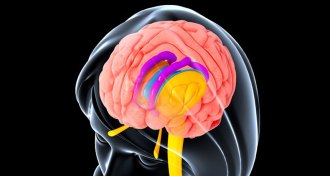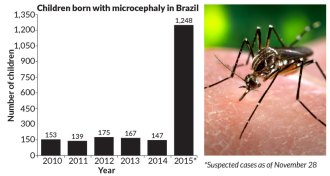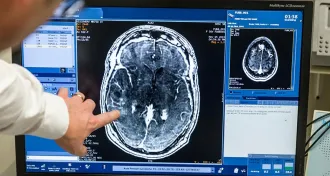
Laura Sanders reports on neuroscience for Science News. She wrote Growth Curve, a blog about the science of raising kids, from 2013 to 2019 and continues to write about child development and parenting from time to time. She earned her Ph.D. in molecular biology from the University of Southern California in Los Angeles, where she studied the nerve cells that compel a fruit fly to perform a dazzling mating dance. Convinced that she was missing some exciting science somewhere, Laura turned her eye toward writing about brains in all shapes and forms. She holds undergraduate degrees in creative writing and biology from Vanderbilt University in Nashville, where she was a National Merit Scholar. Growth Curve, her 2012 series on consciousness and her 2013 article on the dearth of psychiatric drugs have received awards recognizing editorial excellence.

Trustworthy journalism comes at a price.
Scientists and journalists share a core belief in questioning, observing and verifying to reach the truth. Science News reports on crucial research and discovery across science disciplines. We need your financial support to make it happen – every contribution makes a difference.
All Stories by Laura Sanders
-
 Chemistry
ChemistryElusive chemical reaction transition state captured
A new method provides a detailed look at the elusive transition state.
-
 Neuroscience
NeuroscienceBrain shapes come from mom and dad
By linking genes to brain shapes, scientists have a new way to study how the brain works.
-
 Health & Medicine
Health & MedicineIron helps growing bodies, but could too much do harm?
Iron fortification has been a public health victory in the fight against childhood anemia. But too much iron may be a cause for concern, scientists propose.
-
 Neuroscience
NeuroscienceBusy eyes can make ears go temporarily deaf
When challenged with a tough visual task, people are less likely to perceive a tone, suggesting that perceptual overload can jump between senses.
-
 Neuroscience
NeuroscienceEyes hard at work can make ears go temporarily deaf
When challenged with a tough visual task, people are less likely to perceive a tone, suggesting that perceptual overload can jump between senses.
-
 Health & Medicine
Health & MedicineHigh-potency pot smokers show brain-fiber damage
People who smoke potent pot had signs of damage in a brain communication link.
-
 Health & Medicine
Health & MedicineVirus spread by mosquitoes linked to rare birth defect
In addition to fever, rash and vomiting, Zika virus may cause rare birth defect.
-
 Health & Medicine
Health & MedicinePregnancy hormone could keep multiple sclerosis at bay
A small trial hints that pregnancy hormone can reduce MS flare-ups.
-
 Neuroscience
NeuroscienceTaste is all in your head
By targeting certain nerve cells in a mouse’s brain, scientists made plain water turn bitter or sweet.
-
 Health & Medicine
Health & MedicineWhen selenium is scarce, brain battles testes for it
In competition for selenium, testes draw the nutrient away from the brain.
-
 Health & Medicine
Health & MedicineBlood-brain barrier jiggled loose to deliver medicine
Using ultrasounds, doctors attempted to slip a chemotherapy drug into a woman’s brain through the blood-brain barrier.
-
 Health & Medicine
Health & MedicineBlood-brain barrier jiggled loose to deliver medicine
Using ultrasounds, doctors attempted to slip a chemotherapy drug into a woman’s brain through the blood-brain barrier.